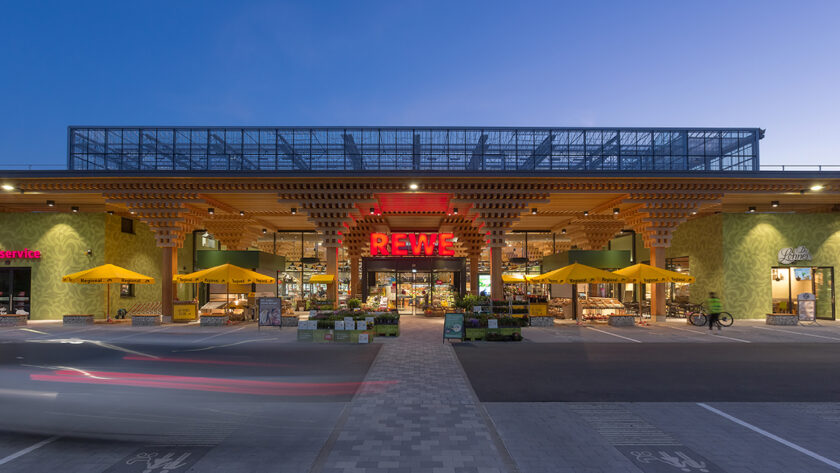A supermarket in Germany that cultivates herbs and fish on its roof for sale downstairs is serving as a showcase of sustainability possibilities in grocery retailing.
Rewe’s 1500sqm supermarket at Berliner Strasse 277 in Wiesbaden was constructed primarily of wood – saving 700 tonnes of CO2 – and deploys a raft of sustainability initiatives throughout the store.
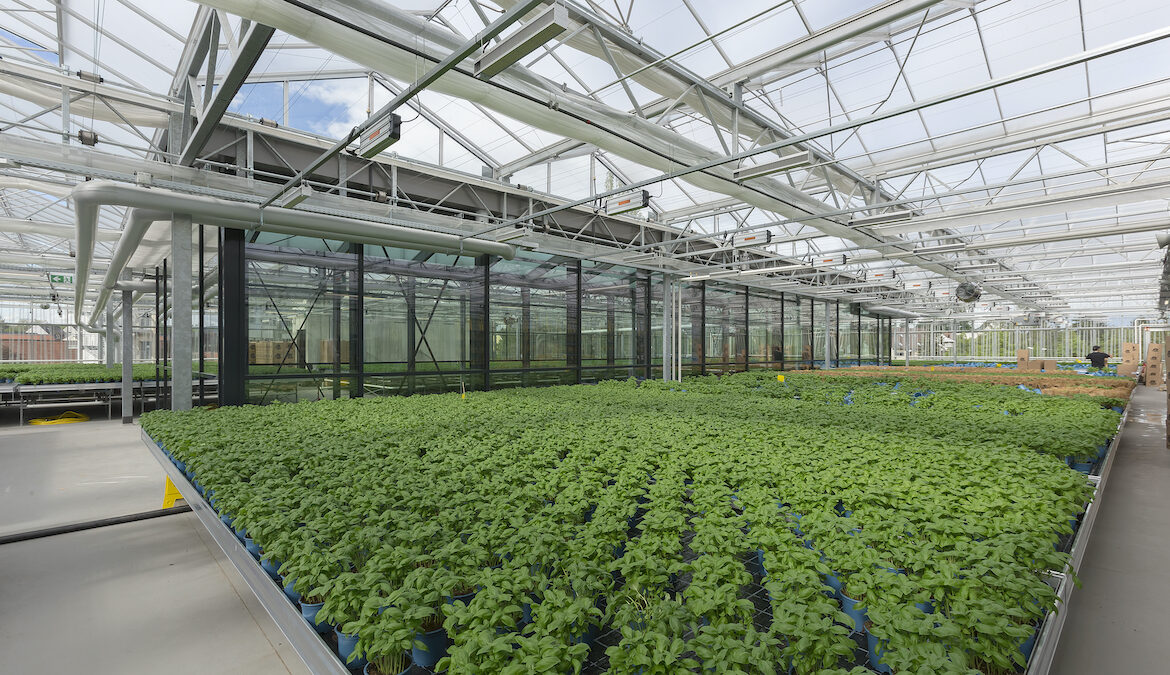
The rooftop farm, which is operated by Rewe’s partner ECF Farmsystems, grows some 800,000 basil plants annually using aquaponics and no pesticides.
Alongside the basil, around 20,000 cichlids (European perch) fish are bred in large basins, with about 1 tonne of fish meat expected to be produced per month when the fish goes on sale late this year. In a clever example of circularity, the fish dung is used to fertilise the basil.
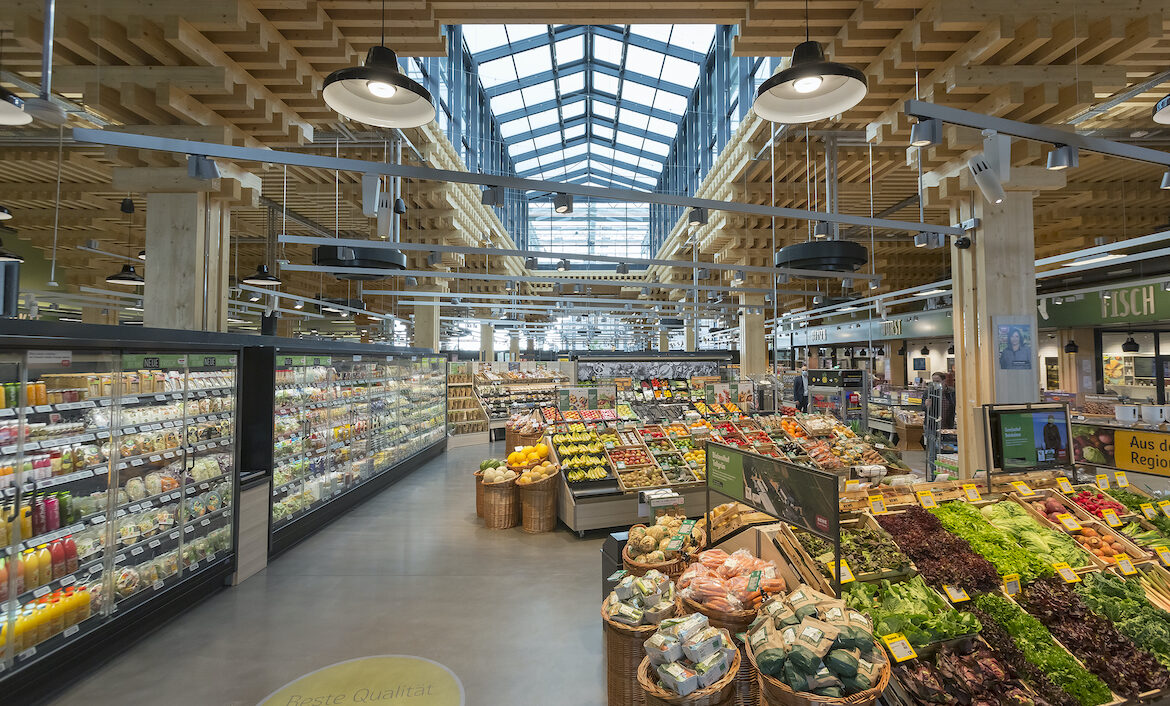
Technology controls the rooftop garden with a computer controlling the temperature and volume of light, and another machine watering the plants drop by drop. Once they reach 4-5cm tall, they are placed on plant shelves and taken care of on so-called ebb-and-flow cushions. It takes about 20 days for a basil plant to come off the roof and into the salesroom below.
Around 14,000 pots of basil are packaged plastic-free on site every week, in sustainable packaging that can save around 12 tonnes of plastic annually.
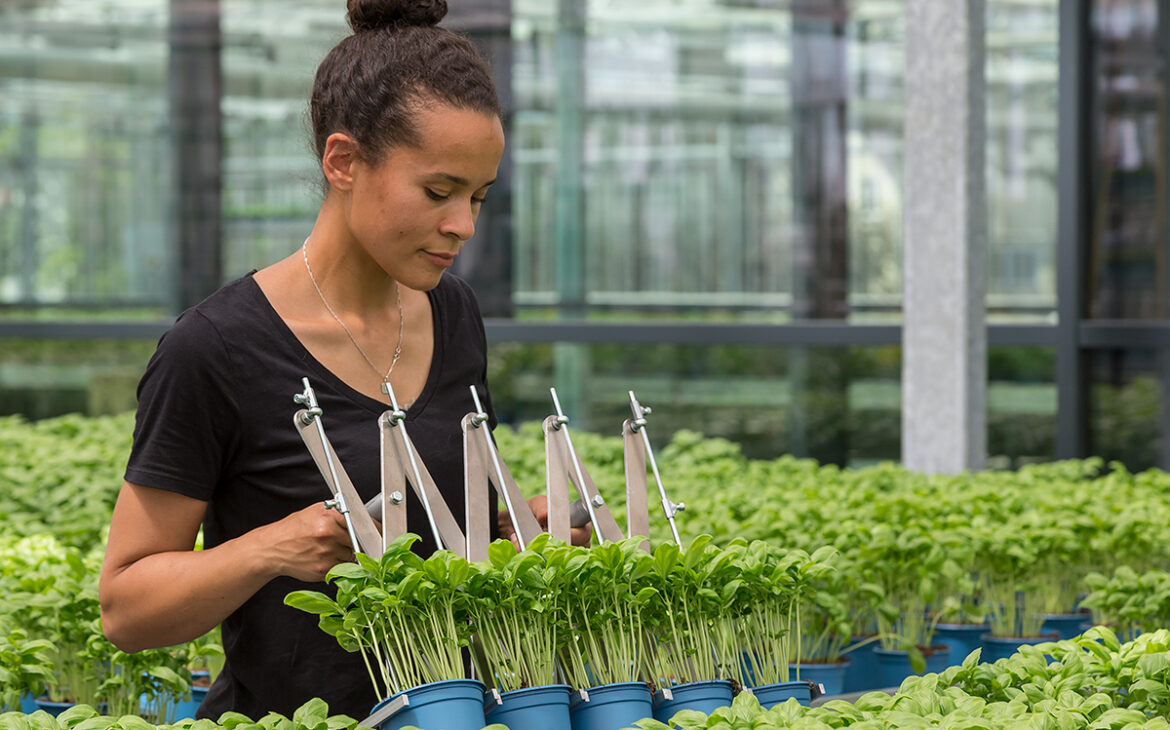
And, of course, growing plants and fish on site saves significant packaging and transportation costs shipping them from suppliers – in Europe, fresh produce travels 1000km on average before it gets onto shelves.
Timber construction
Eye-catching from the outside, there is more to the architectural approach than just the Rewe Wiesbaden supermarket’s unique exterior.
London architecture firm Acme created the design, which features columns of stacked timber from the supporting structure for the glass roof farm to create a unique vaulted shape that extends out over the market. The inside of the store offers customers a view out onto a glass atrium – the greenhouse on the roof.
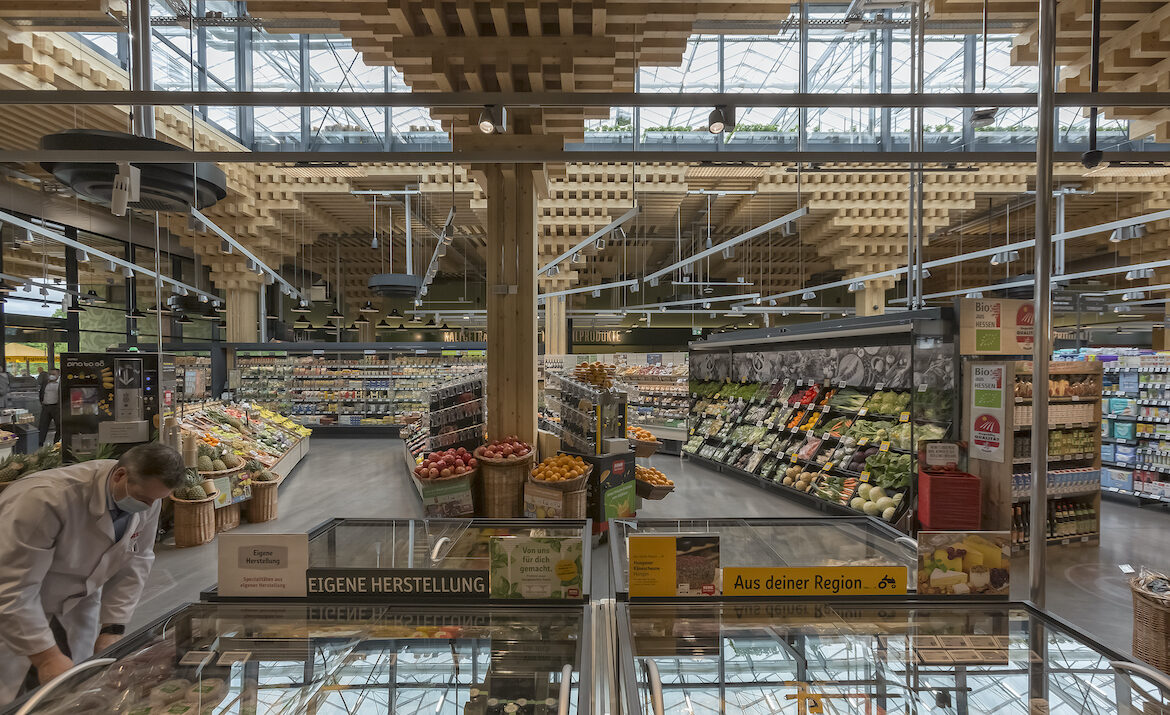
The building was constructed with around 1100 cubic metres of native coniferous wood, a natural and renewable raw material at the core of Rewe’s supermarket of the future.
“With the green farming project in Erbenheim, we are ushering in a new generation of Rewe green stores since, for us, holistic sustainability isn’t just about the range of products we stock – it includes construction and operation too,” says Peter Maly, divisional director of Rewe Group.
“This new structure, the first of its kind in Germany and Europe, is the latest generation of green building. Since 2009, we have already built over 200 green buildings in Germany. The new store with its integrated rooftop farm is the logical next step for us.”
Glazed east and west facades and the atrium have been designed to let plenty of sunlight into the building creating a marketplace-like effect.
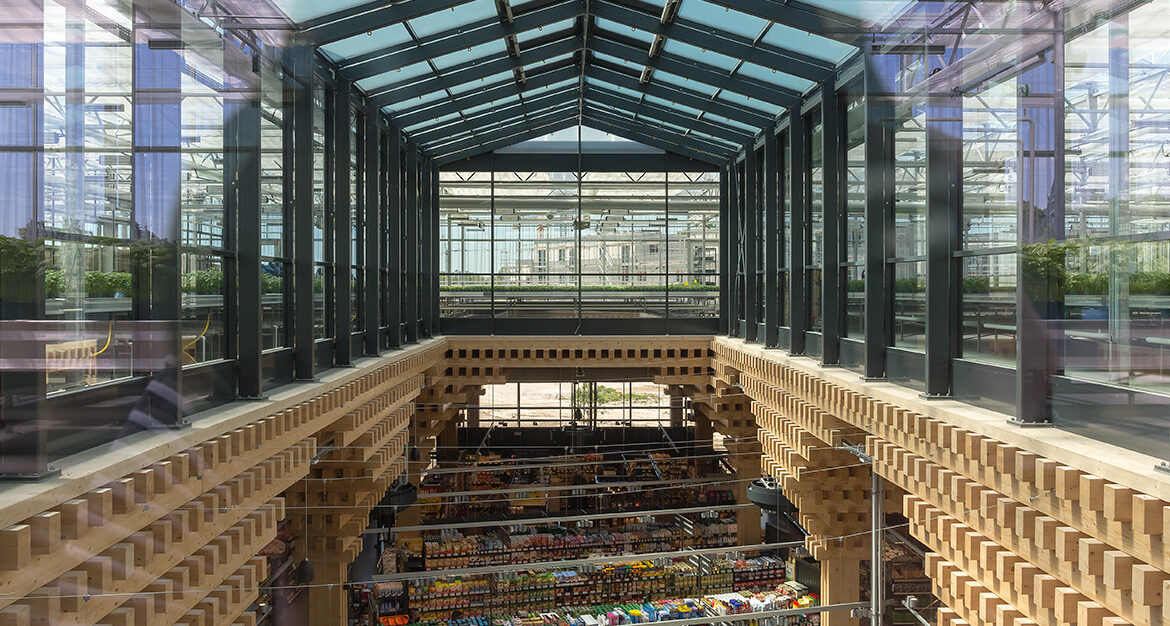
Resources are conserved by the store’s intelligent cooling and heating technology, 100-per-cent green electricity supply and the use of rainwater for the roof farm, sanitary facilities and cleaning.
“The architecture for this market of the future celebrates resource-efficient building,” says Friedrich Ludewig, founder and director of Acme.
“In cooperation with Rewe, we have broken new ground not only in timber construction but also in interior design, to create a very local market that’s rooted in the region, in the choice of materials, the presentation of local products and by producing and processing products directly in the market.”
The outdoor areas are also designed to be sustainable. A new car park layout – in which the parking spaces are arranged in a circle – features reduced sealed surfaces and permeable subsoils. The additional green spaces and a flowering meadow create important habitats for insects.
You can see the store’s interior in this video below (in German) from Rewe.
Fresh-food focus
The Rewe Wiesbaden store is focused entirely on fresh products with a large fruit and vegetable section, including a salad bar, many regional and organic products as well as a glass butchery area with a show kitchen and meat from animal welfare farms.
In front of the store, local suppliers can sell their products in specially built market stalls.
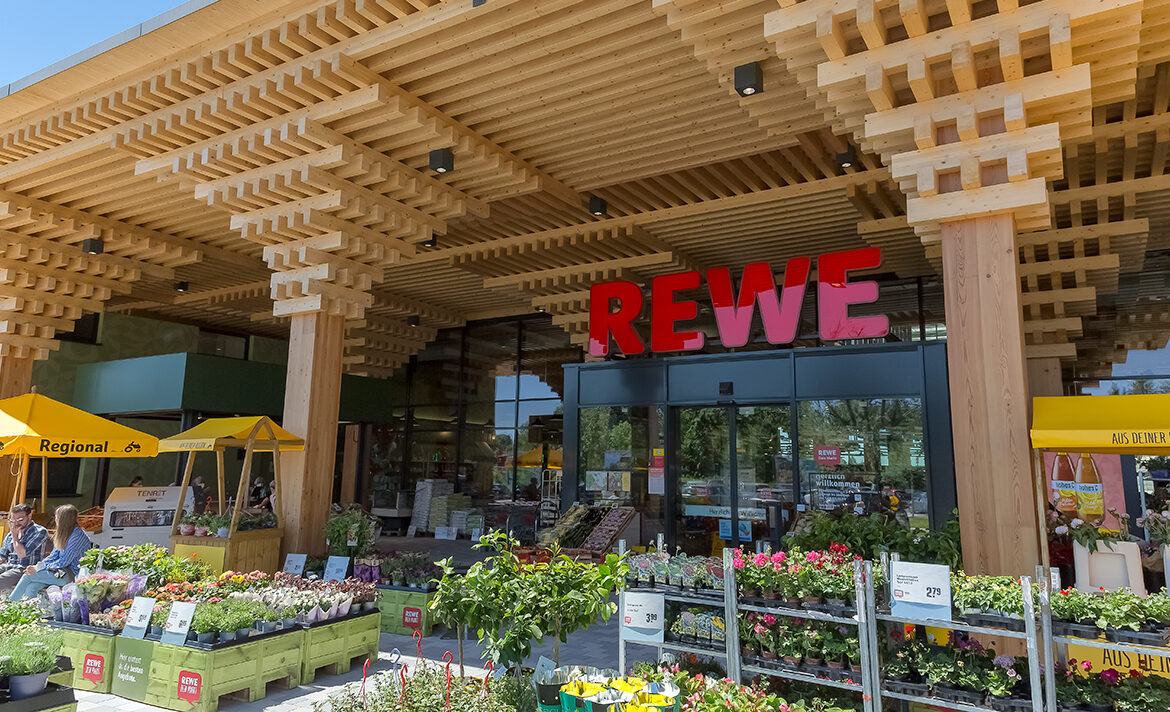
There are charging stations on-site for electric cars and e-bikes.
“The new Rewe store in Erbenheim is a milestone in the development of modern supermarkets,” says Jürgen Scheider, Chairman of the Management Board of Rewe Region Mitte. “I’m very pleased and also a little proud that this special project has been realised in our region. We are particularly proud of the wide range of over 100 regional and local suppliers.”
Rewe Markt GmbH is one of the leading companies in German food retailing, with a turnover of €26.5 billion last year, 3700 stores across Germany and 161,000 employees.

